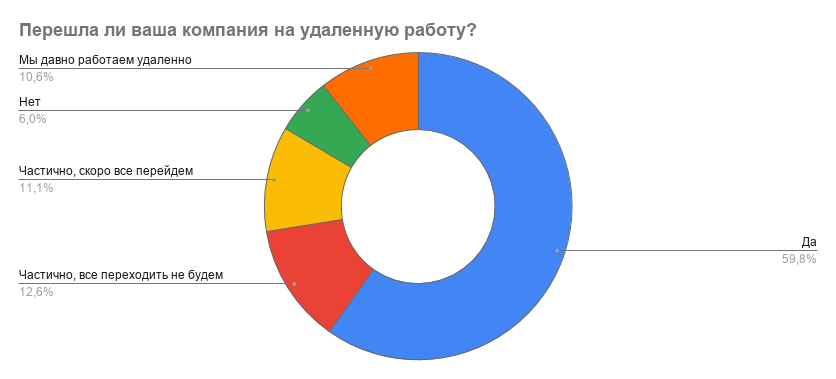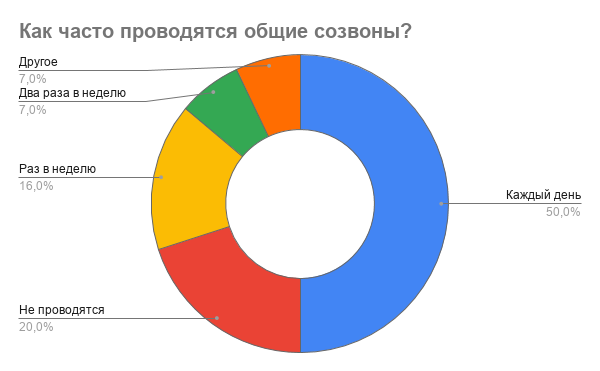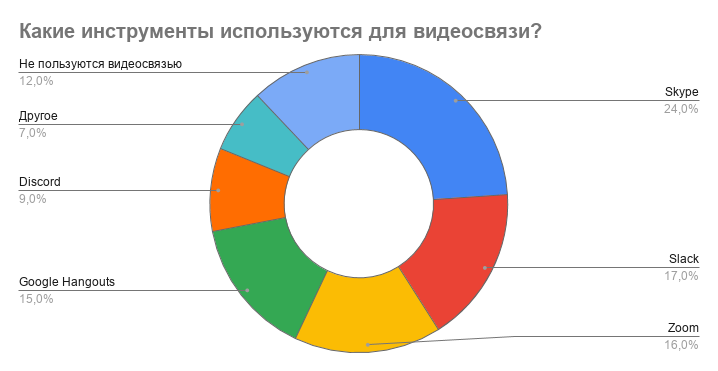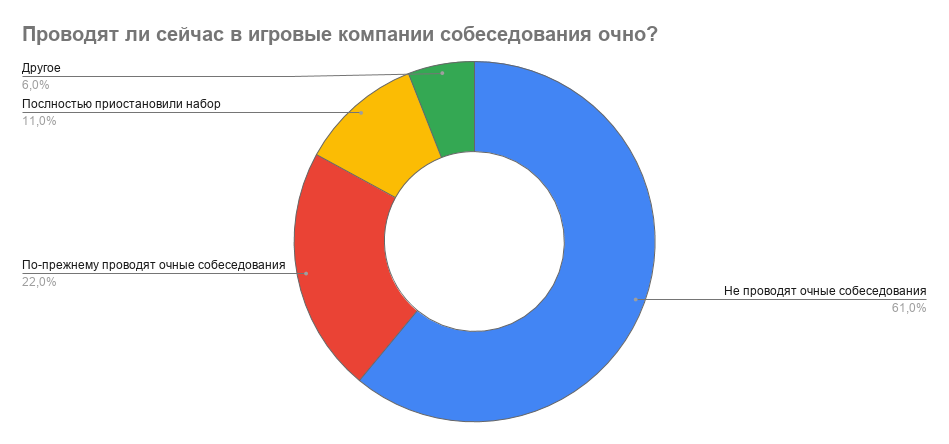Study: how many participants of the Russian-speaking industry have switched to remote work
We tell you how many in the gaming industry have switched to “remote”, as well as what tools they use to organize work at home.
Methodology
From March 17 to March 19, the Talents In Games service conducted a survey of readers on our pages dedicated to remote work. In total, we collected 403 responses.
Most of the respondents came from four countries:
- Russia — 63%;
- Ukraine — 19%;
- Belarus — 9%;
- Cyprus — 1%.
Most of the respondents are game designers and artists. In general, the distribution by profession looks like this:
- 22% are game designers;
- 19% — artists;
- 11% are programmers;
- 10% — top managers;
- 9% — marketers;
- 7% — management;
- 22% — others.
How many respondents switched to remote work?
The shares are highly dependent on the region. For example, in Russia, only 54% of respondents noted that their company switched to work from home. The share is higher among Belarusian developers — 69%. The largest percentage of respondents who noted that they now work from home are Ukrainians, 75%.
In general, 60% of respondents switched to remote work in the Russian-speaking market against the background of the coronavirus pandemic. More than 12% noted that they have partially switched and do not plan to switch to work from home completely.

How many people in the industry have remote work experience?
10% noted that they have been working remotely for a long time.
Of those who have moved to work from home just now, 65% said that they had to resort to this practice before. At the same time, this percentage does not depend on the country. In each region, it ranges from 60 to 65%.
How regular are general calls?
Half of the respondents (50%) noted that they have team-wide calls every day. At the same time, the second most popular (20%) was the answer that they are not held at all. Also, the top three (16%) included a response about weekly calls.

Important: among the teams that have just switched to work from home, the situation with general calls is seriously different from the aggregate: there are much more daily general calls (63%), situations when there are no calls at all or there are fewer of them, a little more than 13%.
For teams that have switched to remote work for a long time, the picture also seriously differs from the average among all respondents. As a rule, they have general calls once a week (40%). Only 20% of respondents from this group have general calls every day. Also, many (19%) noted that they do not have general calls at all.
What tools are used for video communication?
Skype is the most popular tool among all respondents (24%). In second place in popularity is Slack (17%), in third — Zoom (16%), in fourth — Google Hangouts (15%), in fifth — Discord (9%). Important: 12% of respondents noted that they do not use video communication at all to communicate with colleagues.

Out of curiosity:
- among the teams that have just switched to remote work, Slack is a more popular tool for video communication than Skype (21% vs. 19%);
- among teams that have been working remotely for a long time, Slack is even inferior to Google Hangouts in terms of prevalence. It has the same share as Discord with Zoom (15% each).
Also, speaking about the tools they generally use to organize remote work, respondents noted: Git, Jira, Asana, Telegram, Kaiten, Mattermost, Confluence, Google Docs, Wrike, Redmine, Bitrix, Miro, Kanbanflow and Trello.
Do gaming companies currently conduct face-to-face interviews?
Of the HR-s surveyed, 61% noted that at the moment they conduct interviews exclusively by video. Moreover, 11% noted that the company had suspended recruitment altogether. Another 22% said that they still invite applicants to the office.

How comfortable do employees find remote work?
Of those whose company has just switched to remote work, 44% rated comfort with the highest score. Another 37% gave her four out of five possible points. The rest were less satisfied with the conditions.
Respondents who have moved to work from home for a long time in 79% of cases estimate their conditions by five points, another 19% — by four points.
Among those respondents whose companies are still not ready to switch work to remote mode, there are a lot of people who rate the working conditions as “satisfactory” – three points (36%). Although there are also enough very satisfied (45%).
Results
Most of the gaming companies in the Russian-speaking segment have moved to work from home. To a greater extent, this is true for Ukraine and the Republic of Belarus, the process continues in Russia.
Working remotely is not new to industry employees. Moreover, many are happy with the new conditions. Everyone continues to stay in touch and successfully uses a wide pool of tools for remote work.
Our other research:
